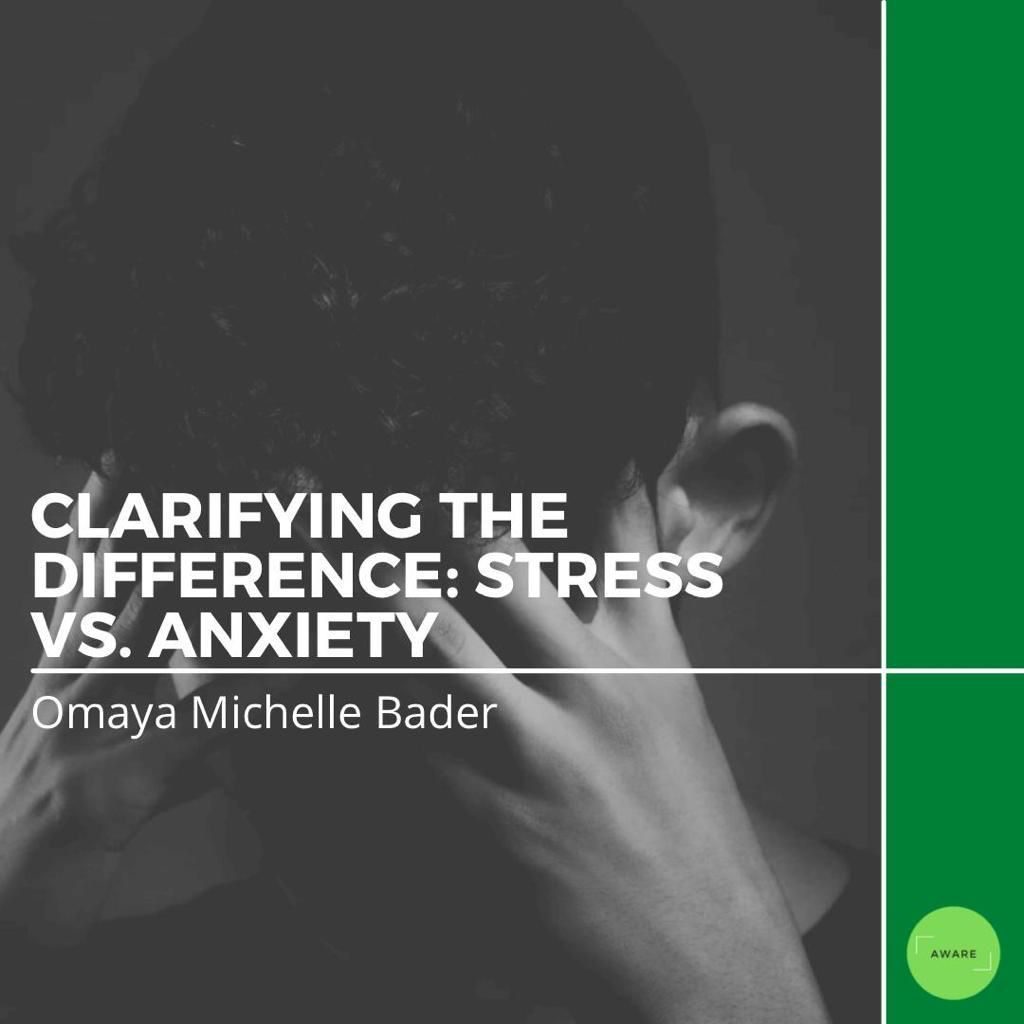Stress – something everyone experiences during difficult times in their lives – such as when studying for a test, having an argument within a personal relationship, or even just trying to figure out what to wear to morning brunch with a friend. Many things can contribute to the feeling of stress. Although, how one faces it is what truly has an impact.
On the other hand, anxiety is a mental disorder that can, in fact, be divided into several categories, being different things yet having similar characteristics. Unfortunately, it is to be noted that many people in this generation refer to the fear due to stress as them having “anxiety”.
Stress
It is extremely important to understand that there is a major difference between being anxious in relation to stress and having an anxiety disorder. Stress is a feeling of emotional or physical tension that can come from any event or thought that makes you feel frustrated, angry, or nervous. Hence, if you are feeling any of the mentioned emotions, then you will experience stress, causing other effects that may be mental or physical. For example, if you are stressed about an upcoming event, then you may experience insomnia the night before. Stress is, in fact, a serious matter, and your actions in response to the stress that you may be experiencing should be taken seriously in order to relieve yourself from experiencing further effects. Methods that one may try so that they are able to cope with their stress are to keep a positive attitude, be aware that there are things that you may not be able to change about a situation, or even try relaxation techniques such as listening to music, meditating, and, for those with strong faith, praying.
Anxiety
As mentioned, anxiety is not an emotion, but a disorder that can be separated into categories. We mainly discuss generalized anxiety disorder and social anxiety disorder. Generalized anxiety disorder is characterized by excessive, exaggerated anxiety and worry about everyday life events with no obvious reasons for worry. This is due to the brain structure called the amygdala that is in control of regulating emotional responses. People with generalized anxiety disorder have a weaker amygdala and cannot physically control their responses to their worries, resulting in anxiety attacks. Anxiety attacks have specific triggers, can build in intensity over time, and can range from mild, moderate, or severe. People who experience generalized anxiety disorder often have to see a therapist, and be put on medication in severe cases.
On the other hand, social anxiety disorder is the fear of social situations that involve interaction with other people. It is the fear and anxiety of being negatively judged and evaluated by other people. Hence, those who suffer with social anxiety disorder tend to become introverts and prefer to stay home and keep to themselves in order to refrain from their fear of judgment. People with social anxiety disorder also experience anxiety attacks that are set off due to triggers, such as eating in public, being called on in a class, making small talk, and more. They, as well, deal with their disorder through therapy and other coping mechanisms.
With the two concepts of stress and anxiety explained, the differences are, in fact, quite obvious. Stress is an emotion that everyone experiences and deals with by using their fight-or-flight response. It is a normal and common emotion that anyone may feel through the awakening of a particular event, anger, or sadness. Whereas, anxiety is a disorder and not simply a feeling. It is a medical condition that is commonly treated by professionals, the same way a physical illness would be treated.
